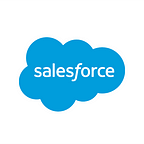Ready to Grow Your Business in 2017? 5 Growth Hacking Tips
By Heike Young
For small and mid-sized businesses, growth is always the goal. Maybe 2017 is the year you finally plan to take your industry by storm. When many business owners start planning for growth, they think: we need a marketing department.
But nontraditional companies like Facebook have actually forgone a marketing department in favor of a growth department. Growth hacking has helped startups achieve massive growth — and established brands and the bootstrapped alike can learn from their successes.
That’s why we interviewed the growth hacker marketing expert himself on this week’s episode of the Marketing Cloudcast — the marketing podcast from Salesforce. Ryan Holiday (@ryanholiday) apprenticed under Robert Greene, author of The 48 Laws of Power, and served as director of marketing for American Apparel. He’s founder of Brass Check and has advised clients like Google, TASER, and Complex.
Ryan is also author of the #1 Amazon bestseller Growth Hacker Marketing: A Primer on the Future of PR, Marketing, and Advertising, as well as other books.
In other words, he’s a super smart guy. And even if you’re at a Fortune 100 company and not looking for funding, Ryan’s insights on marketing, product, and customer experience are still extremely important to hear.
If you’re not yet a subscriber, check out the Marketing Cloudcast on iTunes, Google Play Music, or Stitcher.
Take a listen here:
You should subscribe for the full episode, but here are a few takeaways from this podcast about what your company can learn from the most growth-hacking startups.
1. Favor product and audience knowledge over traditional marketing skills.
Ryan defines growth hacking as “a mix of traditional marketing, direct marketing, and business and product development — all in one.” Because startups don’t have the budget to hire PR and marketing firms, they have to do all of these things in house.
“This generation of startups that have blown up are companies that did all of their marketing themselves, and the people who did it had little to no marketing background,” says Ryan. Startups don’t have the luxury of thinking about the same things traditional marketers do or spending those types of budgets. It’s not about traditional marketing skills. It’s about people who know your product and audience better than anyone else.
2. Focus first on acquiring customers. Then make the product addictive.
“Focus on acquiring users, first and foremost, because that’s what a startup needs to get investors. It’s about trackable and scalable growth. It’s all a startup can and should focus on,” says Ryan.
Instead of putting all of your energy into traditional marketing avenues that a Fortune 500 company would invest in, like pitching media and running ads, use that money and time to add value to your product.
In the early days of a growing business, Ryan says, “The best thing a company can do is make their product more addictive and add social sharing or virality into the experience.”
3. Be like Facebook: Evolve.
As Ryan explains, startups that have successfully used growth hacking “provide lessons and case studies that bigger companies should look at.” He contrasts Twitter and Facebook.
Twitter has struggled to onboard new users, in large part because of the product’s lack of evolution. Ryan pointed out, “600–700 million people have signed up for Twitter, but they only have 300 million users. The Twitter I signed up for in 2007 is the same Twitter I use in 2016.”
Whereas, with Facebook, the product is totally different from when it launched on college campuses in 2004. “[Facebook is] multiple apps — they’ve created a series of additional addictive features,” he explains.
“It’s all about getting and keeping customers. If they’re coming in the front door and leaving through the back door, that’s bad marketing. That’s bad growth strategy,” says Ryan.
4. Avoid the divisions between product and marketing that stall growth.
“The divide that ‘over here we make stuff’ and ‘over here, when you’re done making it, we promote it’ — that’s a very destructive attitude,” Ryan says. Every product decision has marketing implications. “Marketers need to bring real expertise, knowledge, facts, and data to the table so that they can help product managers make those decisions,” says Ryan.
By working together, companies can create products that fulfill a very real and compelling need. “When you really nail the product, the marketing is easy. It’s just about getting the word out,” says Ryan.
5. Don’t do it all. Do one thing well.
If a company helps customers do something better, the brand and community come together easily. To make this happen, companies need to be intentional and deliberate. Ryan urges marketers to ask, “If we had to choose one platform where all our customers are, what would that be?” Focus on that one platform and “hit it out of the park there,” says Ryan.
Instead of trying to do it all, it’s better to do one thing exceptionally well. “When you’re constrained by time and resources, figure out what will be the most effective and start there,” he suggests.
And that’s just scratching the surface of our conversation with Ryan Holiday. Get the complete scoop on growth hacking in this episode of the Marketing Cloudcast.
Join the thousands of smart marketers who already subscribe on iTunes, Google Play Music, and Stitcher.
New to podcast subscriptions in iTunes? Search for “Marketing Cloudcast” in the iTunes Store and hit Subscribe, as shown below.
Tweet @youngheike with marketing questions or topics you’d like to see covered next on the Marketing Cloudcast.
Originally published at www.salesforce.com.
